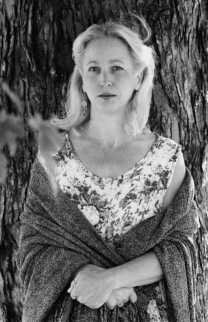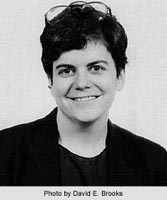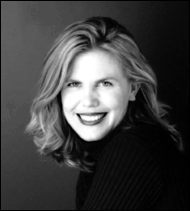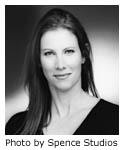Author2Author: Sarah Willis & Maureen McHugh
I’m afraid that I’ve been sitting on this transcript of the Author2Author exchange between Maureen McHugh and Sarah Willis for way too long—between going on that festival tour, then trying to relaunch a column as soon as I got back. But enough of my excuses, let’s just get right to the dialogue, and discover what makes this pair of writers such a good fit.
 Sarah Willis: I was thinking about how we met at the Cajun Sushi Hamsters (a Cleveland science fiction writer’s group), and what a wild experience that was with some 22 members critiquing my first attempt at a novel, a 400-page SF story with a neuropsychiatrist as a narrator. (What was I thinking??) It didn’t take me too long to figure out that what I write best is more mainstream, and I left the group and started a writer’s group with just a few people that met at my house once a month. I didn’t know you very well then, and when you asked to join our group I was both surprised and a little terrified.
Sarah Willis: I was thinking about how we met at the Cajun Sushi Hamsters (a Cleveland science fiction writer’s group), and what a wild experience that was with some 22 members critiquing my first attempt at a novel, a 400-page SF story with a neuropsychiatrist as a narrator. (What was I thinking??) It didn’t take me too long to figure out that what I write best is more mainstream, and I left the group and started a writer’s group with just a few people that met at my house once a month. I didn’t know you very well then, and when you asked to join our group I was both surprised and a little terrified.
You were a real writer with published short stories and an award winning novel, China Mountain Zhang. I had, at that time, published one short story, and was frankly in awe of you. I thought you’d upset the apple cart. You’ve been in our group, what, thirteen years now? I can’t even imagine it without you. So here’s the question: Why did you want to be in both writer’s groups, and how does a writer’s group help you?

Maureen McHugh: Sarah, the fact that you were nervous surprises me. I thought I was writing genre fiction and you were writing the real thing. You had this spare, beautiful way with prose. Funny how we see ourselves versus how others see us. I wasn’t at all surprised when you left the Cajun Sushi Hamsters because while they’re a great group, they seemed interested in different things than your fiction. I guess I felt as if I had a foot in both camps. I wrote stuff that was ostensibly genre, but I’d studied fiction writing at New York University under writers like Robert Stone, Alyx Kates Shulman and Edmund White.
I feel tremendous loyalty to the Hamsters and to the East Side Writers. I guess I’m in two writer’s groups because I felt so strongly that I was suspended between genre and non-genre fiction. That was before slipstream was what it is today, before people like Michael Chabon and Suzanna Clarke and Jonathan Lethem were writing across what felt to me to be very difficult barriers. Now I feel as if what the two groups have is not so much genre/non-genre as just different sensibilities. On the rare occasion I’ve had a story critiqued by both groups, their takes were often extremely different. I don’t think one was right and the other wrong, just that they offered different perspectives on the story.
I think writer’s groups, like cities and people, have personalities. Now I’d hate to give one up because I genuinely like them both.
26 October 2005 | author2author |
Author2Author: Chelsea Cain & Susan Kandel
I was so glad when, after I introduced Chelsea Cain and Susan Kandel to each other and arranged for each to receive a copy of the other’s novel, their reactions were so positive. Chelsea had this to say about Susan’s Not a Girl Detective, in which amateur sleuth Cece Caruso solves a murder intimately connected to the Nancy Drew ouevre: “I loved your book. You have a such a great voice, somehow light-hearted and wicked at the same time.” And Susan told Chelsea that her Nancy Drew parody, Confessions of a Teen Sleuth, “was a hoot. I read it in the offices of Dr. Weintraub, orthodontist extraordinaire, waiting for my eleven-year-old daughter to have her braces removed. Within the hour, I had a seventeen year old and her mom enthralled with my explanation that Bess wasn’t really fat, that Nancy’s mom was actually alive, and that Frank Hardy–well, I don’t really want to go there…”
 Chelsea Cain: I suppose that we should start with the obvious: Nancy. I had such a great time re-reading ND books when I was researching for Confessions, and I was amazed at how I had merely to stack a few of the series on a table in a public place and streams of women would materialize all wanting to share memories of the titian-haired detective. (Okay, sometimes it was kind of annoying.) I’m going to go out on a limb and guess that you read a few ND books as a kid? What role (if any) did those books play in your life as a reader/writer? What was your favorite ND book? And what was it like to revisit the books in preparation for Not a Girl Detective?
Chelsea Cain: I suppose that we should start with the obvious: Nancy. I had such a great time re-reading ND books when I was researching for Confessions, and I was amazed at how I had merely to stack a few of the series on a table in a public place and streams of women would materialize all wanting to share memories of the titian-haired detective. (Okay, sometimes it was kind of annoying.) I’m going to go out on a limb and guess that you read a few ND books as a kid? What role (if any) did those books play in your life as a reader/writer? What was your favorite ND book? And what was it like to revisit the books in preparation for Not a Girl Detective?
Susan Kandel: I never read a Nancy Drew book growing up. It feels good to get that off my chest. I came to Nancy Drew through my de-braced daughter. When she was in first grade, we used to sit in the park after school and I’d read her the books, one after another. By the time she was in second grade, Kyra, her little sister, Maud, who’d clamored to join us, and I were all really into the latent humor. We especially liked the names of the crooks. Our favorite was Benny “The Slippery One” Caputi. We somehow conflated him with Thomas O’Malley, Alley Cat, from The Aristocats, but that’s another story.
Nancy was always exempt from our jokes. She is the alpha girl every zeta girl wants to be: confident, unflappable, unstoppable, loyal, smart, good. She should make you want to puke, but she doesn’t because she makes no pretense of being human: she’s a phantasmatic suburban superheroine who can eat pudding twice daily and still turn a mean cartwheel when needed. It’s sci-fi for girls. What could be better? My personal favorite is Lilac Inn: it is the classic book, I think. My girls prefer The Double Jinx Mystery, which (sorry) goes for baroque.
21 August 2005 | author2author |


 Our Endless and Proper Work is my new book with Belt Publishing about starting (and sticking to) a productive writing practice.
Our Endless and Proper Work is my new book with Belt Publishing about starting (and sticking to) a productive writing practice. 
